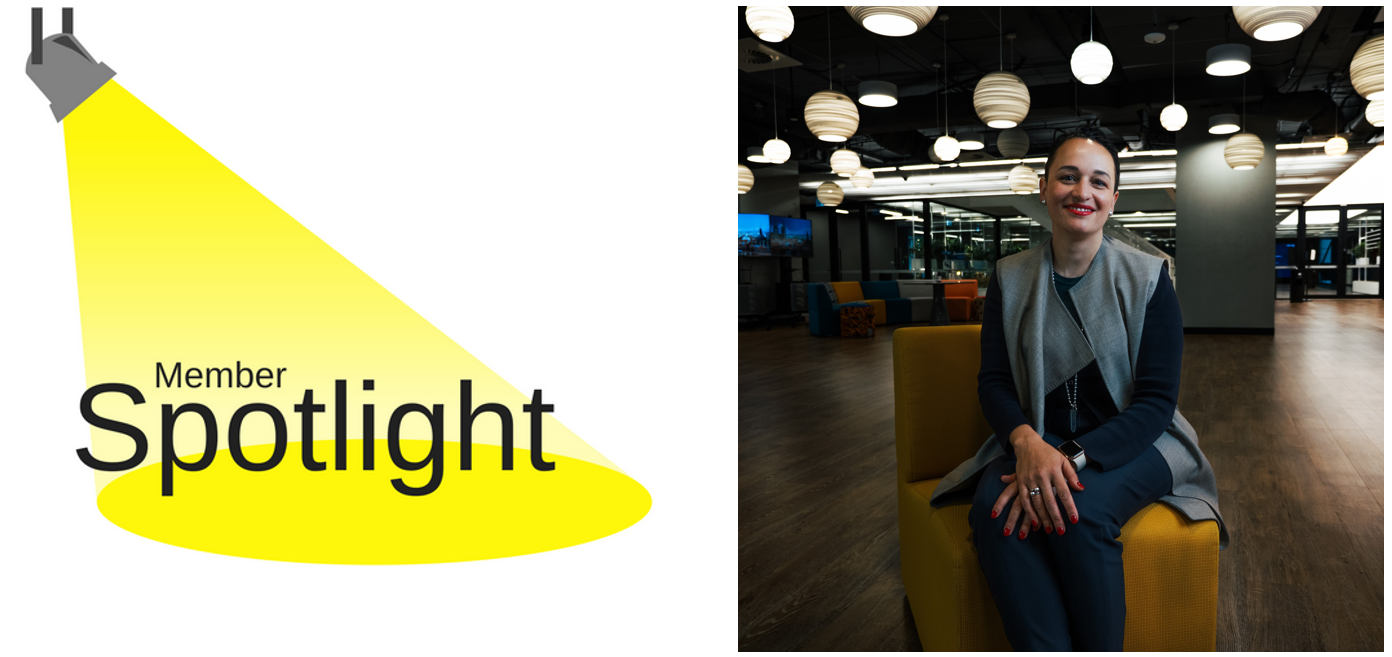
Member in the Spotlight allows us to get up-close and personal with some of our ACC Australia members. This week we are shining the spotlight on Marie Le Bras, General Counsel – Regional Development and Engagement at nbn, winner of the ‘Government Lawyer of the Year’ at the 2022 ACC Australia Corporate Lawyer Awards.
Tell us about your current role.
As General Counsel – Regional Development and Engagement at nbn, my role involves helping nbn to navigate the complex legal and regulatory landscape we operate in, to lift the digital capability of regional Australia.
Day to day this involves working with my team and stakeholders to support our customers, and find ways to help improve their connected lives including through technology upgrade programs and strategic partnerships and collaborations.
I am also currently Acting General Manager (Legal) supporting a group of General Counsels within the nbn Legal & Regulatory Group.
In that capacity I provide people leadership support and services to my team of General Counsels and lawyers. My aim is to provide them with an optimum environment to work in and the opportunities and experience they seek to develop professionally. I also aim to provide guidance as they use their existing skills and strengths to help the company achieve its desired outcomes.
One of the company’s key outcomes that I’ve been fortunate to work on is the nbn Fixed Wireless and Satellite Upgrade Program.
In 2022, I received the ACC Government Lawyer of the Year Award for my work in leading, and being part of, a cross-functional legal and regulatory working group to help nbn secure a $480M investment from the Commonwealth. nbn supported the program by investing an additional $270 million.
The nbn Fixed Wireless and Satellite Upgrade Program will significantly transform the digital landscape for hundreds of thousands of premises across Australia. It will help nbn deliver more coverage, minimise congestion and offer access to two new wholesale high-speed plans on the nbn® fixed wireless network. It will also enable approximately 120,000 formerly satellite-only eligible premises to access fixed wireless services, as well as delivering a better customer experience for our satellite customers who remain on that network.
I’m really proud to be part of this program and it’s one of the many opportunities afforded to me by my current role at nbn.
What do you believe is the most important skill an in-house lawyer needs?
Knowing your business so you can communicate most effectively.
As in-house lawyers, we have the privilege of working as an embedded part of an organisation. We get to see the commercial context and understand the corporate strategy first hand. We can have access to the subject matter experts who can help us to understand the context we’re advising in. So it’s important to spend as much time as you can getting to know the business you’re in, meeting lots of people and asking lots of questions in a collaborative way. This will help you to understand your audience and their objectives better so you can tailor your advice to be accessible and commercially useful.
Taking an interest in your stakeholders’ business areas and commercial objectives will also help you to build your profile within the organisation and become a trusted business partner.
What led you to pursue an in-house legal role?
Early in my career, when I worked in a law firm, I was fortunate to do a number of secondments to client organisations. I really enjoyed getting to know the businesses from the inside, understanding the objectives of those organisations and being able to contribute directly to the strategy and the implementation of outcomes to meet those objectives. I could see projects through from inception to completion and I found that incredibly rewarding. I felt that practicing in-house drew on more of my stakeholder engagement and communication skills as I had to be able to engage with a variety of people across different levels and business units within an organisation.
What advice would you offer to in-house counsel in building relationships within their organisations?
Be courageous and put yourself out there. Remember that every new interaction has something to teach you. Be open and humble and, above all, treat everyone with kindness and empathy. There’s always a way you can help someone. Talk to people, really listen to them and then find a way to use your skills and experience to help them.
What is the one thing a law degree doesn’t teach you about being an in-house lawyer?
One thing is how to take all that legal analysis you’ve done on a question and turn it into something that is accessible, commercially valuable and that a busy stakeholder will want to read. Another one is how to have courageous conversations – I’ve learned that you need to become part of the solution and help turn challenges into opportunities.
What are the biggest changes you’ve witnessed across the legal sector since you joined the profession?
Technology advancements and automation – it has completely changed the way we work and the pace of work. When I started (and I’m showing my age here), sending contract notices by email was novel and video-conferencing was science fiction. Now we have smart contracts, AI, automated tender platforms, more communications platforms than we can count or remember, and so much more. And it’s continually changing and advancing. It’s an exciting time.
Another change is increased flexible and hybrid working practices, especially since the pandemic. This has been a huge game-changer especially when you’re trying to balance your work and personal lives.
Finish this sentence… If I wasn’t a lawyer I’d be…
An archaeologist (I loved Indiana Jones as a kid)….
I like being a part of the ACC Australia community because…
It’s a supportive and diverse community, and a great way to gain insight into the issues facing the legal industry and other community members.